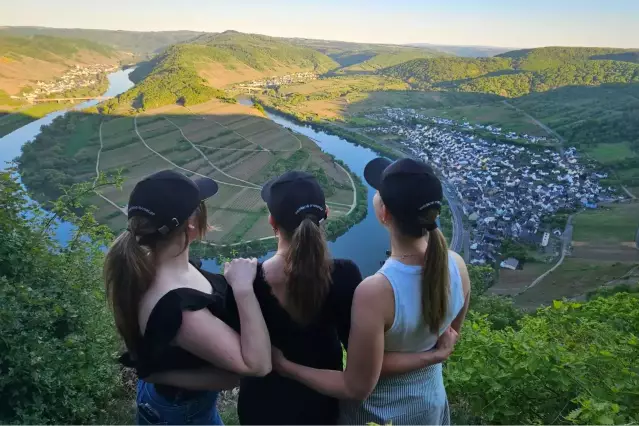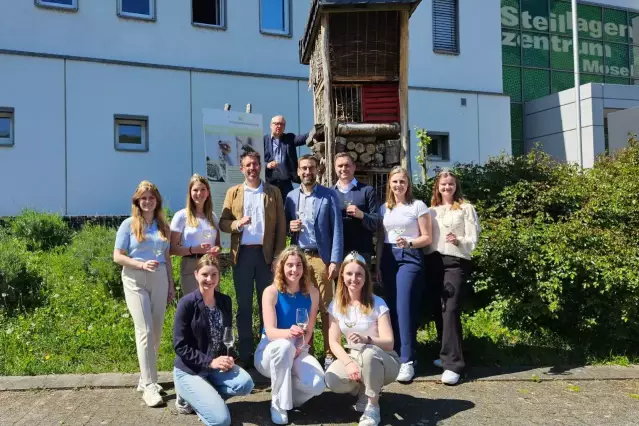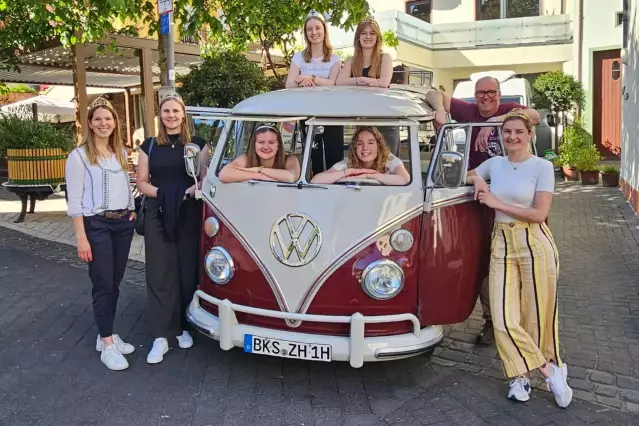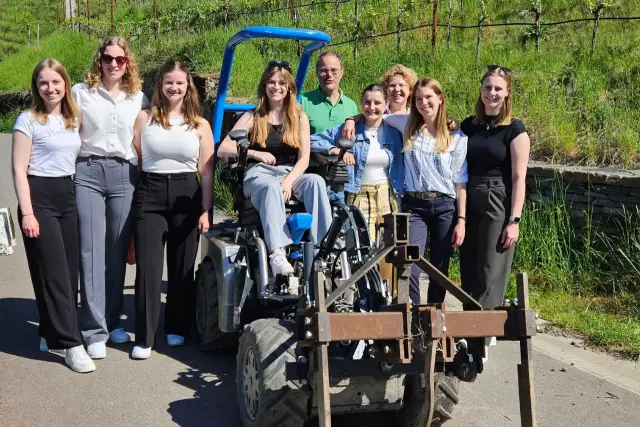Wine sovereigns discover the Moselle: tradition & future
Wine sovereigns travelling along the Moselle: between steep slopes, Art Nouveau and sustainability, they discover steep slope viticulture, sparkling wine culture and modern wine architecture – an exciting insight into tradition, innovation and the future of viticulture.

Steep slopes, Art Nouveau and sustainability – wine royalty on the Moselle
From 28 to 30 April 2025, the German Wine Highnesses' tour of Germany took them to the traditional wine-growing region of the Moselle. The German Wine Queen Charlotte Weihl (Palatinate) and the German Wine Princesses Katharina Gräff (Nahe) and Julia Lambrich (Middle Rhine) were accompanied by the reigning Moselle Wine Majesties. The varied programme ranged from steep slope viticulture and sparkling wine tradition to modern wine architecture.</p <p>Wine architecture, organic quality and Calmont views
The tour began on the Terrassenmosel with a visit to the Bioweingut Christina Andrae, where the wine sovereigns not only gained insights into sustainable steep-slope viticulture, but also had an intensive exchange about the challenges and opportunities of organic viticulture on extreme slopes. Afterwards, the Winery Oliver Dax presented its modern vinotheque and hosted a tasting. After lunch at Restaurant Pollmanns, a visit to Bremmer Calmont, the steepest vineyard in Europe, was on the programme. The first section was covered on the monorack railway, while the wine royalty climbed to the summit on foot - with spectacular views of the typical Moselle cultural landscape.
Sekt culture and Art Nouveau in Zell and Traben-Trarbach
The second day took the group to the Moselle sparkling wine producer Otto Treis, the oldest sparkling wine producer in the region. In Traben-Trarbach, they visited the Bioweingut Louis Klein. The winery's speciality is its large selection of red wines, which make up around 25% of the vineyards. A special highlight of the tour was the trip on the amphibious train of the Art Nouveau Hotel Bellevue on the Moselle. Afterwards, the Villa Huesgen opened its doors: The traditional winery combines architectural heritage with a contemporary wine philosophy. A van tour, boat trip and dinner together at the Zeltinger Hof rounded off the day.
<p <p>Cooperative work and steep slope research in Bernkastel-KuesOn the last day, HRH The Highnesses visited Moselland eG in Bernkastel-Kues, one of the largest winegrowers' cooperatives in Germany, focussing on marketing and membership structure. Finally, we went to the Steillagenzentrum des DLR Mosel, where innovative approaches to the care, development and future of steep slopes were discussed - a key topic for the entire wine-growing region.
<p <p>Moselle as a reflection of tradition, challenge and perspectiveDuring the three-day visit, the Moselle presented itself as a region in which historical heritage, committed businesses and the uniqueness of the landscape are closely interwoven. Whether organic steep-slope viticulture, classic sparkling wine production or modern marketing strategies - the region showed itself to be multi-faceted and future-orientated.
Contact persons
-
Ina Becker
Social Media Manager




